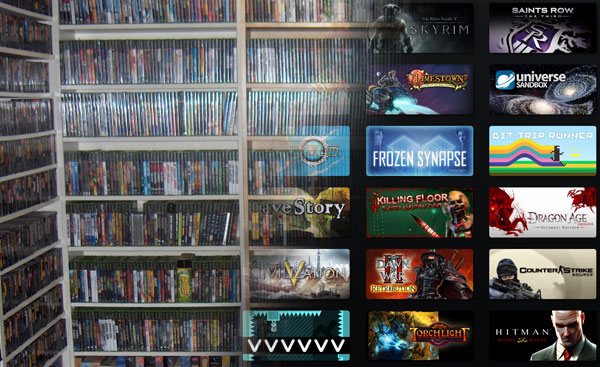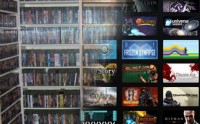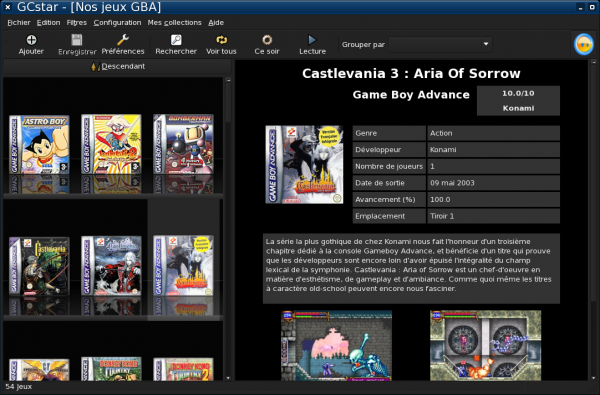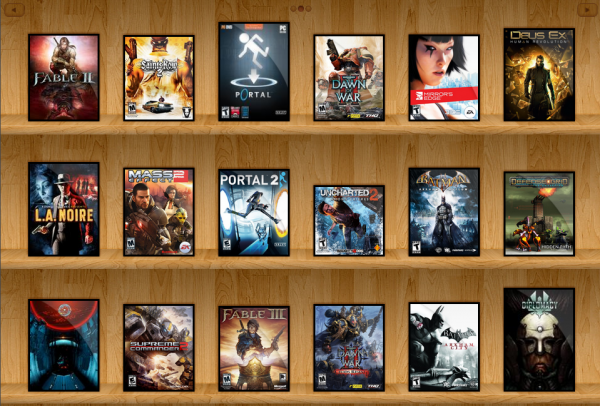
As the years pass, and generations of consoles pass us by, so grows our gaming library. But how do you keep track of a library of games, especially in an age where it’s not as simple as looking at your shelf? I’ve had a hunt about for some of the best ways to accomplish this.Why would you want to list your games?
First and foremost is to know what games you have. These days, you’ll most likely have a few on a shelf, some older titles in an attic or garage, and a fair few on digital distribution services. And with many of us making impulse purchases for cheap titles, we probably have a fair few games we don’t remember buying. Another reason, and one of the main reasons I keep track of my games, honesty I love play this fphc.co.uk it’s about gambling-poker-casino online, is to combat growing backlogs; being able to list which games have been completed or not, this way I also know which ones are my favorite, I try to keep then under categories, for example, I have my gambling games like 666casino.com/no/games separated. For others they may like the social element listing games brings; sharing libraries with friends to compare tastes, see which multi-player titles you have in common, or just to boast of your library’s size.
And finally because you just like compiling lists. There’s a bit of Hermes Conrad in all of us.
The simplest method is to just make a list with whatever software you have on hand, be it in something as simple as Notepad, or more in-depth like Excel. I started up a simple list about a year ago to track my backlog, adding new games as I picked them up. It’s certainly one of the simplest ways to track your games, but also one of the least functional, and can get awfully unwieldy when you have a larger library. But the bonus is it’s fast, it can be laid out however you like, add any games and information you want, and you could even make it on something like Gdocs and add to and access it from anywhere.
If you’re wanting to keep your list stored locally on your PC, but something a bit better than a plain text list, there are plenty of programs to let you do more. From programs that specifically deal with games, such as Sisimizi Game Catalog, to more broader cataloguing programs like GCstar, which can also be used to track your movie and book collections. GCstar is quite good in that it also has companion apps for Android to view your collection on the go, or scan barcodes for easy adding of items. If you’re up for spending some cash you can also buy Delicious Library for OSX or MediaMan for PC. These are a bit more comprehensive and are really only suggested for extensive collections. One feature some people may like is the ability to track lending of games, for those of us with friends who tend to “forget” that we lent them Demon’s Souls a few months back. These all include trial versions, or full free versions, so check them out and see which you like.
Some of us may like to take our libraries to the web, and I’m certainly one of them. An online library comes with the bonus of being able to easily share around the web, some come with additional social features, and many track your achievements too. Many also offer the ability to easily import your games lists from services like Steam, XBL and PSN. Because these are slightly more automated than the above mentioned programs you can be limited to whatever games these services have in their databases. If you’ve built up a collection of obscure Japanese games you might be out of luck.
As far as online collections go my main two are on Darkadia and Raptr. Darkadia is somewhat new and not as feature rich service, but one I enjoy using and find to be much simpler to build up and show off. Because it’s built off the editable Giant Bomb database, those rare Japanese titles aren’t as much an issue as you can go and add them in yourself. Raptr has much more features than most of the programs and services mentioned already. It’s mainly built as a social gaming tool, so it can also attach to your Twitter and Facebook accounts too. As far as lists go Raptr can give a rather comprehensive overview of your collection, categorising by platform and genre too, as well as tracking game time and achievements. Similar services include Playfire and GamerDNA if you want to make your collection and gaming more social. They’re all free to sign up to and include slightly different sets of features, so have a look at which suits you and your needs. For more find in depth informational posts, buyer guides, tech reviews and the latest gaming news, you can visit 25pc.com
So, go forth, get list-making.
Software
Web



I started writing down a backlog, but got depressed and had to stop. :(